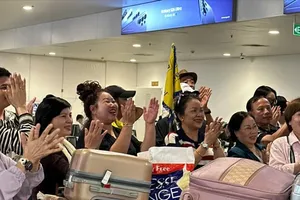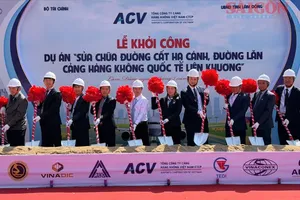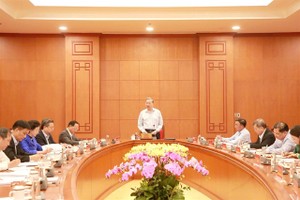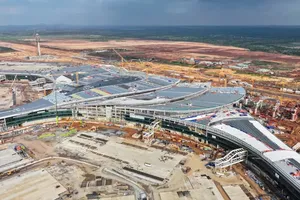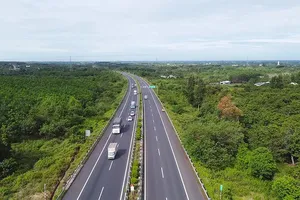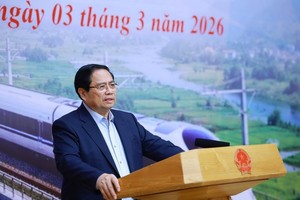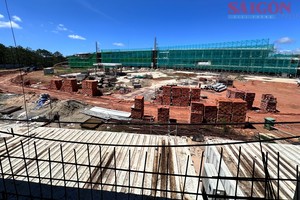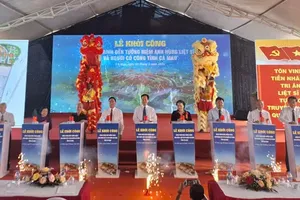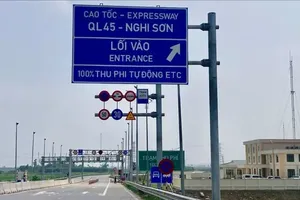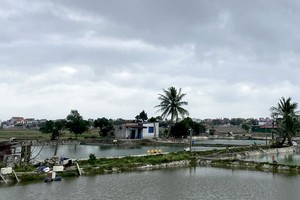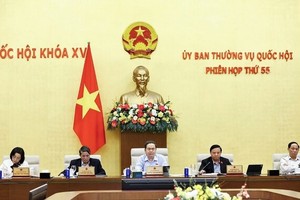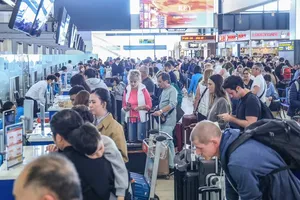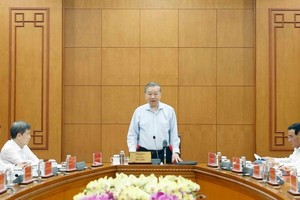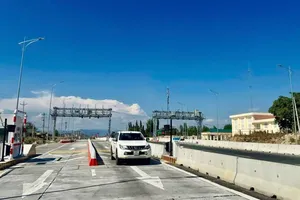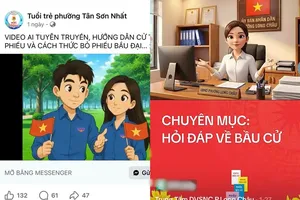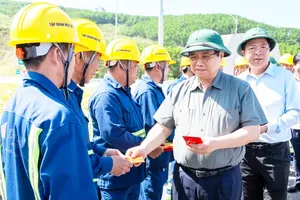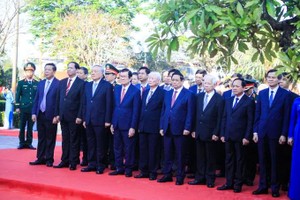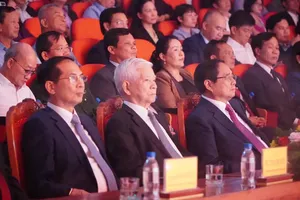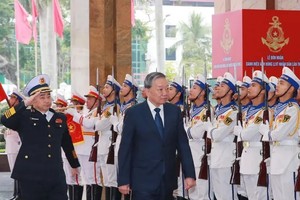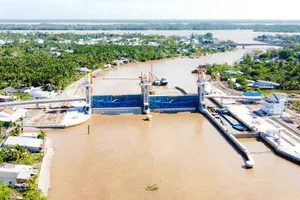Vietnam and Russia agreed to elevate their bilateral relations to comprehensive strategic partnership to meet each country’s development demands and their people’s aspirations while contributing to peace, stability and prosperity in the Asian-Pacific region and the world at large.
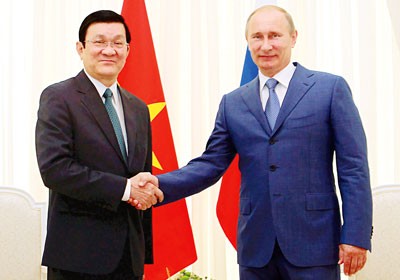
The agreement was reached by President Truong Tan Sang and his Russian counterpart Vladimir Putin during their talks in the Russian city of Sochi on July 27.
The two leaders briefed each other of their country’s political, socio-economic situation and foreign policies.
They exchanged ideas on the bilateral relations as well as regional and international issues of mutual concern.
Sang highly valued Russia’s socio-economic achievements, especially in the context of the global financial crisis and the public debt crisis in Europe.
He affirmed Vietnam’s support for Russian leaders’ long-term policy of comprehensively modernising the country and improving Russia’s role as well as influence in the region and the world over.
Putin spoke highly of achievements the Vietnamese people have attained during the renewal process as well as the national industrialisation and modernisation.
He congratulated Vietnam on its increased position and prestige in the international arena.
Both noted with pleasure the dynamic development in the strategic partnership over the past time.
Apart from fine political ties, Vietnam and Russia have enjoyed strong development in economic-trade cooperation, especially in the strategic fields of oil and gas and atomic energy.
Bilateral trade revenue recorded nearly 1 billion USD in the first five months of this year, representing a year-on-year increase of 45.5 percent, they noted.
However, the two leaders held that the figures still remain too modest in comparison with the two countries’ potentials and demands.
They reached consensus on the early negotiations and signing of a free trade agreement between Vietnam and the Customs Union of Russia, Belarus and Kazakhstan , removing emerging difficulties in a timely manner and boosting cooperation between the two countries’ financial and banking organisations.
They agreed to bring two-way trade to 5 billion USD in 2015 and 10 billion USD in 2020.
Regarding the cooperation in nuclear energy, the Russian side pledged to ensure the progress of the building of the first nuclear power plant in Vietnam as scheduled with the highest safety and quality.
Vietnam and Russia affirmed that they will continue intensifying their cooperation on oil and gas exploration and exploitation on Vietnam’s continental shelf and creating favourable conditions for Vietnamese-Russian joint ventures such as Vietsovpetro, Rusvietpetro, Gazpromviet and Vietgazprom to expand oil and gas exploration and exploitation areas not only in the two but also in the third countries.
Vietnam is willing to get involved in Russia’s programme to boost socio-economic development in Eastern Siberia and the Far East, and to discuss with Russian partners about the possibility of establishing joint ventures producing goods that are of Vietnam’s strength such as garments and textiles, footwear, wood products, seafood and electronics, Sang said.
The Russia side affirmed to continue helping Vietnam train its soldiers to the level of mastering the Russian military technology and equipment in Vietnam , and to focus at attention on national defence training for Vietnam .
They also affirmed the need to broaden their cooperation in science-technology, education and training, and held that they should soon establish the Vietnam-Russia Technology University in Hanoi and improve the efficiency of the Vietnam-Russia Tropical Scientific-Technological Research Centre to meet each country’s development requirements.
The two leaders took notes of the active contributions by Vietnamese citizens working and studying in Russia and Russian citizens working and studying in Vietnam to the maintenance and strengthening of the traditional friendship and comprehensive cooperation between the two countries.
On this occasion, President Sang asked the Russian side to continue supporting the Vietnamese community to legally study, work and live on a long-term and stable manner in the country.
The two leaders demonstrated their high consensus on international and regional issues and expressed their pleasure at the close coordination and mutual support at regional and international forums, especially at the United Nations.
They also affirmed to continue the tradition of closely coordinating for the benefit of each country, and for peace, stability, cooperation and development in Asia and the Pacific and the world over.
Vietnam welcomed Russia ’s joining the World Trade Organisation and highly valued the country’s role and activities as the chairman of the 2012 the Asia-Pacific Economic Cooperation forum.
The Russian side also praised Vietnam ’s active role and activities in ASEAN as well as regional and international organisations, and asked Vietnam to continue working as a bridge for the strengthening of Russia ’s relations with ASEAN and other regional mechanisms with ASEAN as the core.
Both expressed their belief that Sang’s Russia visit will significantly contribute to consolidating and developing the bilateral ties.
Sang used the occasion to invite Putin to visit Vietnam . The Russian leader accepted the invitation with pleasure and the time for the visit will be arranged through the diplomatic channel.
After the talks, Sang and Putin witnessed the signing of a number of documents. They include a protocol ratifying an agreement on juridical and legal assistance for civil and criminal issues between Vietnam and Russia and a protocol supplementing an agreement on juridical and legal assistance for legal ties and civil and criminal issues signed on August 25, 1998 between the two countries, a memorandum of understanding (MoU) on the enhancement of cooperation in agriculture between Vietnam’s Ministry of Agriculture and Rural Development and the Russia’s Agriculture Ministry, an MoU on the exchange of bilateral trade statistics and a joint action plan on the fight against smuggling between the General Department of Vietnam Customs and the Federal Customs Service of Russia, and a cooperation programme for the 2013-2015 period between the Ministry of Culture, Sports and Tourism and the Russian Culture Ministry.
Both sides issued a joint statement on the enhancement of the comprehensive strategic partnership between Vietnam and Russia .
In the joint statement, the two sides said they support the formation of a new, fairer and more democratic world order, while realising that risks and challenges in the world politics and economics are increasing. They held that it is necessary to build a new world order based on the principles of multilaterality, supremacy of international law, fundamental principles of the UN Charter, including the respect of sovereignty, national integrity and non-intervention into internal affairs of nations.
Vietnam and Russia held that international security is comprehensive and inseparable, adding that it is not allowed to ensure security of a nation by harming that of others, including the expansion of military-politic alliance and the establishment of global and regional anti-missile defence systems. They attached importance to the promotion of coordination of activities on the international arena in order to fight terrorism in any form.
Both sides were of the view that the United Nations holds the central role in coordinating international missions, including the guarantee of security and sustainable development. They agreed that the prerequisite to reform UN main agencies is the maximum consensus on the issue among UN member countries.
The two countries’ leaders stress that the armed intervention in internal conflicts of sovereign nations and the imposition of unilateral sanction without appropriate attention to internal politic, ethnic, religious and cultural specificities and other characteristics contain risks of instability and increase tension in international relations.
Vietnam and Russia resolutely reject all plots of revising the World War II history that cast doubt on the decisive role of the people of the former Soviet Union in the victory over the Fascism and militarism.
Both sides supported G-20’s efforts in completing global economic and financial management for stable, sustainable and equal growth and the world monetary-financial system’s restructuring, fighting the protectionism, and giving more attention to development.
President Putin highly valued Vietnam ’s role in activities of the Association of Southeast Asian Nations (ASEAN), and other regional and international links.
President Sang voiced support to Russia ’s strategic policy to unceasingly strengthen its position in Asia and the Pacific for the sake of peace and sustainable development in the region.
The two sides supported the establishment of an open, transparent, fair and cooperative security architecture in the region built on international law’s provisions and principles of non-alliance and consideration of legitimate interests of all countries.
The leaders welcomed the substantial implementation of cooperation between Russia and ASEAN.
Vietnam and Russia affirmed their determination to increase coordination to cope with new challenges and risks threatening security and sustainable development in the Asia-Pacific region, firstly within the framework of the ASEAN Regional Forum and the ASEAN Defence Ministers’ Meeting plus dialogue partners.
The two sides held that territorial disputes and other disputes in the Asian-Pacific space should to be solved only by peaceful measures without the use of force or the threat to use force, based on the existing international law, particularly the UN Charter and the 1982 UN Convention on the Law of the Sea. They support the full implementation of the 2002 Declaration on the Conduct of Parties in the East Sea and the approach to the building of the Code of Conduct in the East Sea at an early date.
Vietnam and Russia affirmed the policy of expanding the cooperation within the framework of ‘Asia-Europe dialogue forum’, conference on interaction and confidence-building measures in Asia (CICA) and the East Asia Summit (EAS).
They also supported the inclusion of principle issues on regional security to the EAS’s agenda
